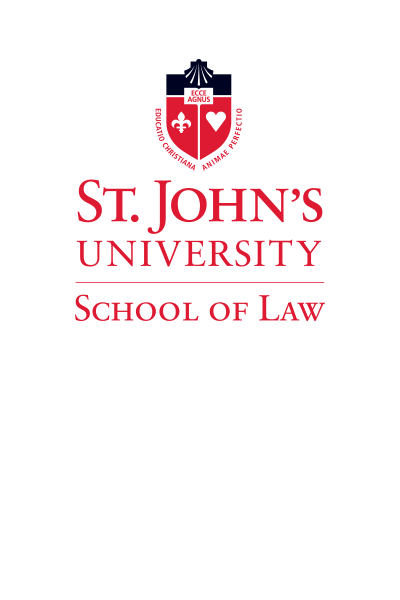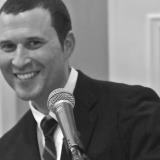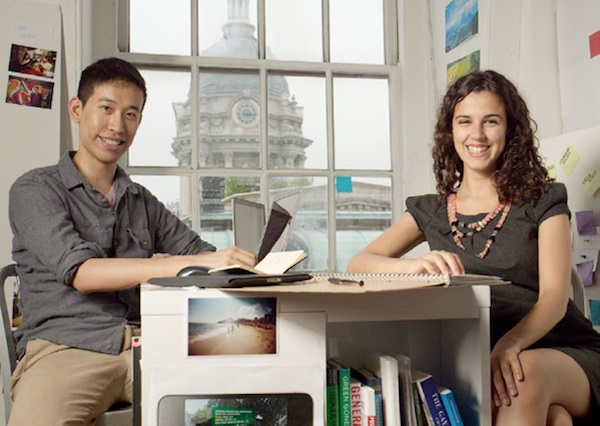Job: Fellowship Opportunities – Pickering and Rangel Fellowships (U.S.-based Graduate Institution)
Posted by Sydney Sparrow. Click here to join the JETwit Jobs Google Group and receive job listings even sooner by email.
Position: Fellowship Opportunities
Posted by: Pickering and Rangel Fellowships
Location: Redmond, WA, USA
Contract: Full-Time
Thanks to Manuel Peralta (who works at the U.S. Consulate in Osaka) for passing along the below Fellowship opportunities for U.S. citizens.
Charles B. Rangel International Affairs Graduate Fellowship Program
Thomas R. Pickering Foreign Affairs Graduate Fellowship Program
St. John’s Legal English: Comprehensible input for legal English students
Steven Horowitz (Aichi-ken, 1992-94) is Director of Legal English at St. John’s University School of Law in Queens, NY and publisher of the St. John’s Legal English blog. He will be attending the upcoming TESOL International Conference in Seattle and will be on a panel titled “Legal Language: Strategies for Effective Communication in Law School” scheduled for March 23.
 Comprehensible input for legal English students: Resources, approaches & ideas
Comprehensible input for legal English students: Resources, approaches & ideas
International students in LLM and legal English programs at US law schools come to study law, not ESL. At the same time, law study requires deep engagement with texts and concepts that are complex and challenging even for native English speakers. But how do you have substantive class discussions or evaluate students’ legal writing when students are struggling to sufficiently comprehend the language of the reading?
In linguistics, the relevant term is “comprehensible input.”
Click here to read the full blog post on the St. John’s Legal English blog.
Nathaniel Simmons (Nara-ken, 2007-2009) is currently is currently a communication faculty member at Western Governors University and lives in Columbus, OH, USA. He teaches a variety of intercultural, interpersonal, and health communication courses. He has researched and published several scholarly articles regarding privacy management between foreign English teachers and Japanese co-workers in Japan.
“Something of and in Japan, [is that] it doesn’t matter about who you are. Your health is never private. They [Japanese] don’t see health as a privacy thing. So you know, if you want to keep it private, don’t talk to anyone about it.” – Alice
After having my own interesting health experiences in Japan, I remained curious as to what other ALTs experienced. Therefore, I went back to Japan and interviewed 10 ALTs (5 women and 5 men) about their medical encounters. I quickly learned that it wasn’t “just me.” I heard a lot of strong comments such as Alice’s. In fact, everyone managed their medical privacy to some extent. I share one story below:
“There were no barriers. Every person in the village, every school, you know everyone in the Board of Education, the whole school knew that I broke my leg and what days I was going to the hospital, and medication I’ve been given. There’s no quiet, patient confidentiality.”
Meet “Jamie.”
An ALT in rural Japan like most of the ALTs employed by ALT organizations. She loved her job, teachers, and students. She worked hard and was enthusiastic about English education.
After breaking her leg, everyone knew. But how? She explained:
“It starts off with the supervisor who tells the Board of Education, they then informed the schools, and well, the schools tell the teachers, and the students ask, they tell the students, the students tell the parents, the parents go to the restaurant down the road and tell them, and the whole village knows.”
For Jamie, living in rural Japan meant that she wasn’t able to obtain her desired privacy levels. Suddenly, she was not just the “foreigner,” but the “foreigner with the broken leg.” She was the talk of the town. Even her prescribed medication wasn’t a secret. At the same time, Jamie was a “good sport.” She laughed about the spectacle of her situation. However, this somewhat uncomfortable experience influenced later health encounters.
After having appendicitis, Jamie didn’t want to go to the hospital as her doctor suggested. She told her Board of Education (BOE) that she just needed to go home and “sleep it off.” However, her tale doesn’t end there.
Although somewhat comical to Jamie, she saw this as a privacy violation. After-all, this isn’t a situation Jamie would have experienced in her home country. People now knew information she didn’t want them to know. She attempted to not have her school involved, but things didn’t go the way she planned. In reality, the doctor’s decision potentially saved her life, but, at the same time, Jamie perceived her privacy to be violated.
This sentiment was echoed throughout stories of ALTs’ health experiences. Someone told someone, who told someone else…and before they knew it, everyone knew information about them and, yet, they didn’t know much about anyone else.
How did ALTs manage their privacy in this study?
Withdrawing from workplace relationships (i.e., not talking to co-workers), lying, intentionally or through omission, and relying on the help of a non-workplace related friend (i.e., another ALT, Japanese friend, etc.) were the three most common strategies shared. For example, if an ALT was on medication that they didn’t want their co-workers to know about, they might say it was an “allergy” pill. If any ALT felt their privacy was violated, they stopped talking to co-workers…sometimes about everything.
Questions for you:
- To what extent was privacy a concern for you? Why/why not?
- How did you protect your secrets? (It doesn’t just have to be health!)
- What do you recommend to current ALTs regarding their private health information? Future ALTs? Do you agree with Alice?
This blog post is an adaptation of the scholarly article: Simmons, N. (2012). The tales of gaijin: Health privacy perspectives of foreign English teachers in Japan. Kaleidoscope: A Graduate Journal of Qualitative Communication Research, 11, 17-38. Retrieved from http://opensiuc.lib.siu.edu/kaleidoscope/vol11/iss1/3/
Let’s Talk Japan, Episode 17 – Temple University Japan
Let’s Talk Japan is a monthly, interview format podcast covering a wide range of Japan-related topics. Host Nick Harling (Mie-ken, 2001-03) lived in Japan from 2001 until 2005, including two great years as a JET Program participant in Mie-Ken. He practices law in Washington, D.C., and lives with his wife who patiently listens to him talk about Japan . . . a lot.
In this episode, Nick speaks with Bruce Stronach, the dean of Temple University Japan, the oldest and largest foreign university in Japan. Together they discuss the unique undergraduate and graduate opportunities available at Temple’s Tokyo campus as well as recent trends and the future of higher education in Japan.
Nick
If you have not already done so, be sure to “Like” the podcast on Facebook, and follow the podcast on Twitter @letstalkjapan. Additionally, please consider leaving a positive rating and/or review in iTunes.
CLAIR Magazine “JET Plaza” series: Mark Flanigan (Nagasaki)
Each month, current and former JET participants are featured in the “JET Plaza” section of the CLAIR Forum magazine. The July 2013 edition includes an article by JET alumn Mark Flanigan. Posted by Celine Castex (Chiba-ken, 2006-11), currently programme coordinator at CLAIR Tokyo.
***********

“It was a wonderful feeling to be able to walk the same pathways, both physical and metaphorical, that I had first walked a decade before. Much has changed since then, in Japan and in my own life, but I will always remain incredibly thankful to CLAIR and the JET Programme for this “Twice in a Lifetime” chance.”
A native of Pittsburgh, PA, Mark Flanigan (Nagasaki-ken, Hirado-shi, 2000-04) spent four years in Nagasaki Prefecture as an ALT and PA . He applied for JET as part of his long record of work, study and travel abroad, which has given him a deeper understanding of global affairs and insight into different languages, people and cultures. Mark Flanigan currently serves as Program Director with the Japan ICU Foundation (日本国際基督教大学財団) in New York City and is a first-year Resident of International House of New York. He came to New York after two years in Tokyo, where he earned his MA in Peace Studies as a Rotary International Peace Fellow at International Christian University (ICU). Mark has also been a US Army Officer, Presidential Management Fellow (PMF), and CSIS Young Leader.
Twice in a Lifetime
Like the great majority of JET programme participants, I look back with fond recollections on my time in Japan. Unlike most of them, however, I also had a second chance to come back and live in Japan once again. It was an amazing experience, and one which I never planned on, which allowed me to compare my two very different “Japans.” Although I lived in that same country twice, the differences in time, location and purpose made for a very insightful analysis of how both Japan and I had changed in the intervening years.
My first years in Japan were spent as a new ALT who had never been to Asia, much less lived there. While I had some experience teaching English in the U.S. and Mexico, I was not an Asian Studies major and was not at all familiar with the Japanese language. Nonetheless, I grew to love my new life in Hirado, Nagasaki Prefecture. I immersed myself in the community, getting involved in the local karate dojo as well as participating in the various seasonal festivals and extracurricular activities like speech contests, international days and so on. My original plan to stay just one year changed into multiple re-contracting, and I actually ended up spending a total of four years on JET (teaching both in Hirado as a municipal ALT and then as a Teacher-Trainer at the Prefectural Education Center in Omura City.)
Returning to the U.S. after four years in Japan, I became busily focused on other areas and gradually lost touch with my various connections to JET and Nagasaki. I went to graduate school for Public Policy at George Mason University in the Washington, DC area and started serving with the U.S. Government after graduation. My life continued to progress in this new direction, which was successful enough and still internationally focused, but less-connected to Japan with each passing year. I found myself forgetting more and more nihongo and generally feeling like my JET experience, while a wonderful time, was becoming a kind of closed chapter in my life. Read More
The Growth of MAT-TESOL and USC Rossier Online
If any JETs or JET alumni are thinking of doing a Masters in Teaching English to Speakers of Other Languages (TESOL), this is definitely worth a read. I also encourage any JETs interested in teaching to join the JETAA Educational Professionals LinkedIn group:
THE GROWTH OF MAT-TESOL
This blog post was originally published at USC Rossier Online and written by Dr. Rob Filback and Dr. Christian Chun. Dr. Filback is Associate Professor of Clinical Education and Co-Chair of the Global Executive Doctor of Education program. He serves as a coordinator for the MAT-TESOL. Dr. Chun is Assistant Professor of Clinical Education for the MAT-TESOL program.
Origins of the MAT TESOL
Our MAT-TESOL degree that launched in 2010 is the product of a multi-year, collaborative redesign process. The MAT-TESOL program (Teaching English to Speakers of Other Languages) boasts a rich heritage at USC and has featured prominent scholars over the decades such as David Eskey, Fraida Dubin, and Stephen Krashen. In 2008 we decided to build on this foundation by redesigning the TESOL program in order to create a new, innovative and forward-looking degree that could better prepare graduates for the new challenges and new opportunities now facing English language teachers around the world.
We began by inviting an external review by a team of experts: Donna Brinton, Maureen Andrade and Lia Kamhi-Stein. Then, using this team’s recommendations, the faculty worked together to overhaul the USC TESOL program. The existing degrees were closed and one entirely new degree, the MAT-TESOL, was created. This included designing all new courses focused on current problems of practice , expanding the role of clinical field experiences, restructuring the capstone and practicum experiences to be more professionally relevant, and integrating technology including offering the degree online through 2SC.
About the Degree
The resulting MAT-TESOL degree directly addresses prevailing challenges being faced by TESOL educators in classrooms around the world. The new degree is also more dynamic and nimble, designed to give faculty the ability to make ongoing changes and to develop new units and modules as new needs are identified. The degree consists of four terms of coursework requiring approximately 14-15 months to complete. The online degree and the on-campus degree utilize the exact same curriculum, faculty, and requirements. The target audience for the MAT-TESOL includes current or prospective teachers who wish to enter or advance in the field of TESOL. Roughly a third of program participants are pre-service or novice teachers, while the remaining students have a range of teaching experiences that include teaching young learners or K12 students, university students, and or adults. About half of the students in the program are situated domestically in the U.S. and about half complete the degree while residing in another country. The majority of participants who complete the MAT-TESOL are U.S. citizens.
Growth of the Program
Since the launch in 2010, the number of enrolled graduate students has increased dramatically, from a 12-member on-campus cohort in the Fall 2010 to 39-member on-campus cohort for Fall 2012. The online cohort students have increased as well in the last two years, bringing the total number of both on-campus and online students in the Fall 2012 cohort group to 71 students! They have come from a variety of countries including Spain, Italy, Japan, South Korea, China, Saudi Arabia, and of course, the USA. In addition, the Trojan TESOL society has been reactivated with numerous students planning activities and events for the coming academic year. Several of our MAT-TESOL students have presented on their work at professional conferences including the regional TESOL conferences. Our graduates are currently teaching across the United States and abroad in a variety of educational settings.
To learn more about the MAT-TESOL program, request more information or check out the USC Rossier Online TESOL page!
JET and the Rotary Peace Fellow connection: William Nealy, Jr.
By Mark Flanigan (Nagasaki, 2000-04), Program Director at the Japan ICU Foundation in New York City and former Rotary Peace Fellow in Tokyo.
As a Business Development Manager at Impact Japan, William Nealy, Jr. (Oita, 1994-97) works with mainly ‘gaishikei’ (non-Japanese) companies in Japan to understand their leadership and team development needs. William works in partnership with these companies to design effective solutions to “future-proof” their operations in Japan. He’s passionate about finding ways to help Japanese and foreign clients to align their people development strategies with their overall business strategy, and he loves the rush and satisfaction of helping clients achieve their goals. He is also multilingual- speaking English, Japanese and Spanish. In the Q&A below, William explains more about his own JET and Rotary Peace Fellow experiences in Japan, and how they have literally changed his life.
1) Thanks for answering our questions, William! Where and when were you a JET?
Sure thing! I was in Oita City from 1994-97.
2) What was your role? (ALT, CIR, SEA)
I was a Ken ALT, mainly based at Oginodai High School, with regular visits to a few junior high schools.
3) Did you have any previous background in Asian languages and cultures?
I had studied Japanese at university for four years, so I had a decent head start. But realized pretty quickly when I actually got to Japan that I had a lot of room for improvement in my Japanese skills. But living in Oita, as opposed to a place like Osaka or Tokyo, I was relatively immersed in the culture and language.
4) What did you do following your JET service?
Although I had traveled within the US before JET, my time on the JET Program was my first time abroad. It really opened up a whole world for me, and was the catalyst for me wanting to live, breathe and experience more of the world. Living in Japan, in relatively rural Oita, triggered my curiosity for seeing the world. I also felt deeply that I wanted to continue to develop a career with a global scope and somehow contribute to developing people. So after JET, I set out Read More
JET alum recommends Meiji University “Law in Japan Program”
Seattle-based JET alum Regina Durr (Shimane-ken, 2008-10) got in touch to let JETs and JET alums know about the Meiji University “Law in Japan Program.” Here’s what she has to say:
I participated in the 2010 Law in Japan program at Meiji University between my JET tenure and returning to the States… and LOVED, LOVED, LOVED it! There was a mix of JETs current and exiting, U.S.A. MBA students, French Master in Law students, interpreters, and ad hoc foreigners who enjoy getting out of their box and into an academic setting.
The Meiji Law in Japan Program was the perfect dive back into academia and the professional career lifestyle immediately after JET. The days are filled with lectures and trips to places such as the Supreme Court, the former Ministry of Justice, a local prison, and even enables you networking opportunities with top, international law firms in Tokyo. I took the course as a cheaper alternative of finding out whether or not I would want to specialize in Japanese Law back in the States. With a brief overview from top experts (even flown in from Washington, D.C.!), I am now finding myself applying to Law School to formalize the training began through this program.
A little background info about me: I am currently a Project Coordinator at the global headquarters of a high-tech consulting company located just outside Seattle, WA. I am active in the Pacific Northwest JET Alumni Association chapter and continue to mentor high school exchange students in the community, while also playing volleyball and completing triathlons.
About the Meiji University “Law in Japan Program”
“Law in Japan Program” is an introductory course for studying Japanese laws, at Meiji University, a private university in Tokyo.
2012 ONLINE APPLICATION FORM is NOW OPEN.
- The 2012 Summer intensive program is from July 23 to August 3, 2012. http://www.meiji.ac.jp/cip/english/programs/law/applications.html (*Application deadline to be extended; to late April*)
- For the 2011 results, please check the Past programs page. http://www.meiji.ac.jp/cip/english/programs/law/past.html
- URL: http://www.meiji.ac.jp/cip/english/programs/law/index.html
- Law in Japan PR Video: http://www.meiji.ac.jp/cip/english/programs/law/index.html
Meiji University Law in Japan Program 2012
——————————————————————————-
Law in Japan Program
Meiji University School of Law
1-1 Kanda-Surugadai, Chiyoda-ku,
Tokyo, Japan 101-8301
E-mail: law_jp@kisc.meiji.ac.jp
Note: Do you have a post-JET program that you’d like to recommend to other JETs and alums? E-mail jetwit [at] jetwit.com and tell us about it.
JET Alum Projects $54.3 Billion in New Law School Debt by 2020
*****
Matt Leichter (matt [dot] leichter [at] gmail [dot] com) (Saitama-ken 2003-05) is a renegade attorney who plays by his own rules. He operates a think tank of one, The Law School Tuition Bubble, where he archives, chronicles, and analyzes the rising cost and declining value of legal education in the United States.
On December 5, the American Lawyer (aka the AmLaw Daily) published Leichter’s most recent article, “Law School Debt Bubble, Part II: Data Show Feds Will Lend $54.3 Billion to U.S. Law Schools by 2020,” in which he uses American Bar Association data to project the exponential growth of law school debt in contrast to the small number of new lawyer jobs in the U.S.
JET Alum Calculates American Law Graduate Debt Grew $475 Million from 2008 to 2010
*****
Matt Leichter (matt [dot] leichter [at] gmail [dot] com) (Saitama-ken 2003-05) is a renegade attorney who plays by his own rules. He operates a think tank of one, The Law School Tuition Bubble, where he archives, chronicles, and analyzes the rising cost and declining value of legal education in the United States.
On November 22, the American Lawyer (aka the AmLaw Daily) published Leichter’s most recent article, “Law School Debt Bubble: Aggregate Law School Grad Debt Grew $475 Million Between 2008 and 2010,” in which he uses U.S. News and World Report and American Bar Association data to illustrate the ever-increasing growth in law school debt graduates have taken on even though law jobs have been disappearing for decades.
Links to Leichter’s previous AmLaw articles can be found here.
JET alum Lee-Sean Huang in Fast Company, recruiting alumni interested in design for social innovation for new MFA program
JET alum and JETwit webmaster Lee-Sean Huang (Oita-ken, Nakatsu-shi, 2003-2006) recently appeared in the Fast Company article “An MFA Degree For Designers Who Want To Change The World” by Michael J. Coren.
So you want to change the world? Cynics may send you off to Wall Street or a white-shoe law firm. Those with gumption will look for another way. The new Master’s of Fine Arts in Design for Social Innovation has opened its doors just for them.
“We’re adamant this not be a program where people sit in a classroom and talk about how great it’s going to be when they go out and change the world,” says program chair Cheryl Heller at the School of Visual Arts (SVA) in New York, and a board member of PopTech. “It is helping designers go beyond self-expression, which is how most designers are taught, and how to put [design] into practice to create a change.”
Read the full Fast Company article here.
Lee-Sean, a faculty member in the department, is reaching out to the JET community and encouraging returning JETs and alumni to apply to the MFA Design for Social Innovation program. The program is for applicants from a broad range of backgrounds with an interest in design and social innovation, and not just those with college degrees or prior professional experience in design. Email leesean@purpose.com with inquiries, and apply here. The deadline for applications is January 15, 2015 for Fall 2012 enrollment.
Photo: Lee-Sean with fellow MFA Design for Social Innovation faculty member Alessandra Orofino.
Media Outlets Claiming ‘Law Is no Longer a Golden Ticket’ Conceal Decades of a Profession in Decline
Matt Leichter (matt [dot] leichter [at] gmail [dot] com) (Saitama-ken 2003-05) is a renegade attorney who plays by his own rules. He operates a think tank of one, The Law School Tuition Bubble, where he archives, chronicles, and analyzes the rising cost and declining value of legal education in the United States.
The popular lawyer periodical, the Am Law Daily, ran an article I wrote, titled, “Media Outlets Claiming ‘Law Is no Longer a Golden Ticket’ Conceal Decades of a Profession in Decline.” In it I use Bureau of Economic Analysis data, charts, and animations to demonstrate that the legal sector of the U.S. economy stagnated about 20 years ago, and along with increasing law school tuition creates a crisis for legal education in the United States.
Career/Networking reminder: JET Alum LinkedIn groups
Just a reminder that there are a number of LinkedIn groups set up for JETs and JET alumni geared towards professional connecting and career development:
*Don’t see what you’re looking for? Start your own JET alum LinkedIn group and e-mail jetwit [at] jetwit.com. We’ll post it on JETwit.
**Also, don’t forget about the JETwit Jobs Google Group as well as the JET Alum LinkedIn groups by prefecture.
I just set up a new LinkedIn group for JETs, JET alums and Friends of JET who work in academia or are interested in working in academia. This includes any professors, PhD candidates, masters degree students or anyone related in any way to research and academia.
CLICK HERE to join the
JET Alum Academics LinkedIn Group.
Deadline Extended: Survey of American Alumni of the JET Program
Just received word from JET alum Emily Metzgar, Assistant Professor at Indiana University’s School of Journalism that given everything going on with the earthquake/tsunami in Japan, the deadline for the Survey of American Alumni of the JET Program has been extended to April 8 up until midnight. (Here’s the original post for the full explanation.) If you haven’t completed it yet, it would be greatly appreciated if you could as this info will have an impact on the future of the JET Program.
AMERICAN JET ALUMNI SURVEY
(URL: http://iujournalism.qualtrics.com/SE/?SID=SV_5hFAK01YxHtzqfO)






